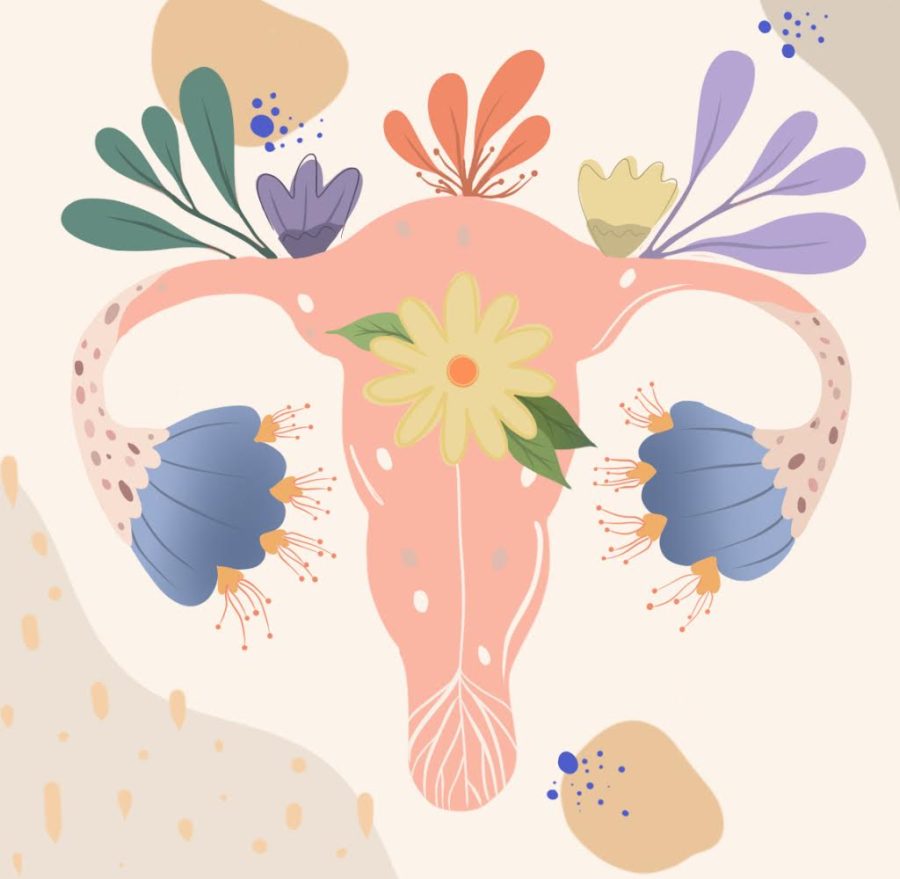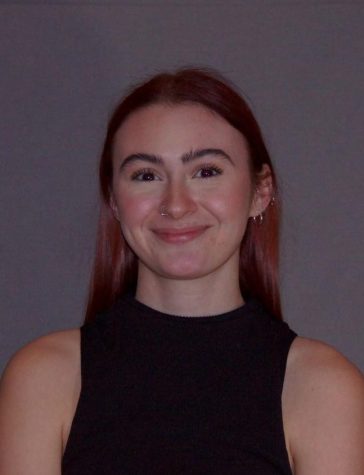UTSA hosts reproductive justice activists Dána-Ain Davis and Deirdre Cooper Owens
April 5, 2022
As part of its Women’s History Month commemoration, UTSA hosted an event titled “In Search of Reproductive Justice, A Conversation Between Dána-Ain Davis and Deirdre Cooper Owens.”
Davis and Cooper Owens are both reproductive justice activists and scholars, and they discussed their work and research about reproductive justice as part of the conversation.
According to her biography on the university’s website, Dána-Ain Davis “is a Professor of Urban Studies at Queens College and on the faculty of the Ph.D. Programs in Anthropology and Critical Psychology.” She has written several books throughout her career that deal with reproduction and racism.
Davis explained that when starting a new work, she highlights the story of a particular individual.
“When I’m writing ethnography or articles, I often start with a person’s voice and a person’s story and it’s a little like who is coming through me at the moment … there’s a voice, there’s a presence — something that comes to you,” Davis said.
Davis, an anthropologist, explained the inability to include many experiences due to interpretive saturation.
“I did not include all of the narratives or the experiences of people that I spoke with, and in part, that decision was driven by the fact that I don’t think you need to include everything, but also, what people said reached a point of interpretive saturation. There was a kind of internal validity that was reached, where people were saying the same thing over and over again,” Davis said.
According to Davis, deciding on the amount of detail in order to “understand poignant moments that allow … to think about how we can move forward to make changes,” was also a challenge.
“I’ve written two monographs, and the first one was about battered women. And it was when I wrote about that subject that I had to make a decision about how much detail I wanted to give because I was actually … doing my research in a battered women’s shelter, so the things that I saw and the things that I heard were obviously horrific. And so, I had to make a decision about the degree to which I wanted to share the minute details of each person’s life,” Davis said.
Cooper Owens, “the Linda and Charles Wilson Professor in the History of Medicine and Director of the Humanities in Medicine program at the University of Nebraska-Lincoln”, further discussed interpretive saturation from the historian’s perspective, pointing out that it was important that there “isn’t a saturation of all of the brutality.”
Cooper Owens’ work focuses on “African American historical experiences and reproductive justice.” Through her work, she tries to focus on highlighting the voices of women.
“In terms of whose voices get heard, I wanted the women to be at the center of this. And so, even though I’m using sources written by men … I extracted enough where I could at least construct that person’s life and experience as accurately as the information allowed me. And so, I really wanted their voices privileged as best I could,” Cooper Owens said.
Cooper Owens also pointed out the influence of popular culture in portraying topics like slavery with a “red bow tied at the end.” She explained that oftentimes, the audience tends to have unrealistic expectations due to this portrayal.
“I think the ways that folk learn about slavery in this country, in particular, is from TV and film — popular culture [which is] meant to entertain. And so, folk really want a red bow tied at the end. And I’m like I have to stay committed to the accuracy of the sources as best I can, and so, there will not always be a bow tie,” Cooper Owens said. “That has been a challenge, I think, for me — trying to teach it in a way where I don’t want people depressed, I want them to see that these were multi-layered, three-dimensional human beings … but also being very clear like ‘You might not get the happy end that you want.’”
In the case of both Cooper Owens and Davis, their research topics developed naturally due to information they learned along the way.
Davis’s research was initially focused on the proliferation of NICUs, which led her to investigate the connection between this proliferation and abortion restrictions in many U.S. states. Eventually, Davis transitioned from “looking at NICUs and the doctors to looking at the people whose children were admitted to NICUs,” after an encounter with a woman at a talk.
“So, I actually ended up changing my project because of her to focus on Black women’s meanings and interpretation of their medical encounters as a result of their pregnancies, their labors, their deliveries and the postpartum care,” Davis said.
Cooper Owens, on the other hand, started out looking at the history of medicine, and it was not until she started working at the University of Mississippi in 2009 that she began working in the field of reproductive justice.
“When I got recruited to doing this kind of work, it just started to make sense to me that the work I was doing was closing some of the gaps and also showing ways that these institutions had been built upon the very bodies of Black people and Black women … it just made sense by the time my book came out in 2017, in the midst of a Black birthing crisis, that I would be able to use my voice as a professor to advocate for reproductive justice — especially in terms of curriculum design,” Cooper Owens said.
The two authors also explained their methodological approach as it relates to their various projects.
Cooper Owens emphasized putting the patients first, while Davis described her approach as a “Black feminist approach.”
“I find oral history to be one of the most profoundly elegant ways to collect data. To have people open up and share with you their personal narratives — it blows me away and I revere people who do that,” Davis said.
Davis and Owens concluded by talking about things they hoped people would unlearn as it relates to their area of study.
Cooper Owens pointed out that it was important to unlearn misinformation when looking at the history of things like anesthesia. She explained that misinformation often hinders the ability to accurately understand history.
Davis expressed the hope that people would unlearn several things, including the attribution of class to outcomes, as well as the reliance on the medical technology complex to answer questions.
“One of the other things that I hope we think through is, as we continue this ongoing conversation about racial disparity, that is marked by an interest in prevention, I’m hoping that we can deploy a kind of radical caring for people rather than this kind of objectifying and lifting up outcomes … as a statistical symptom of racism,” Davis said. “So, in other words, we need to be thinking about care and not just [focus] on numbers. We need to think about the care that people need, the care that people want, the care that people deserve and make that the driving force for any kind of changes in … the medical field — not just the numbers.”








